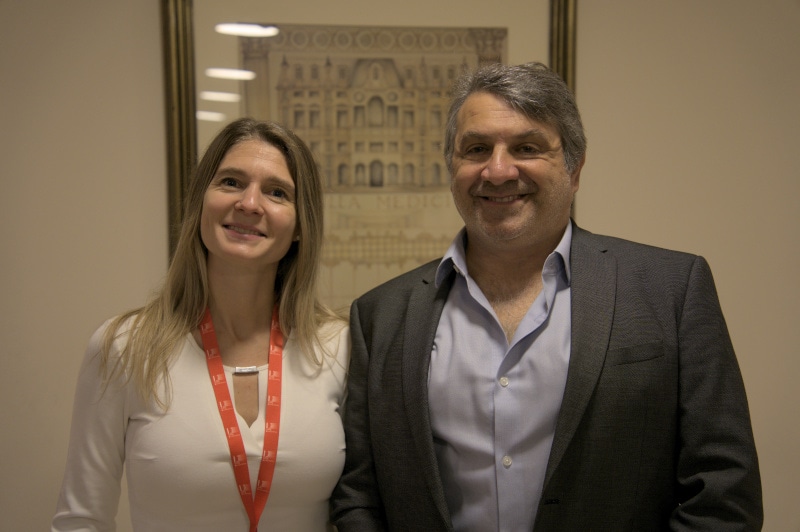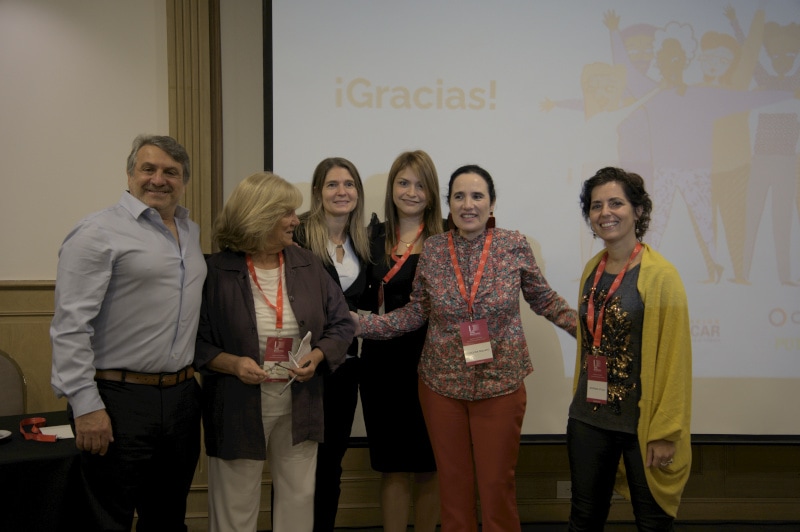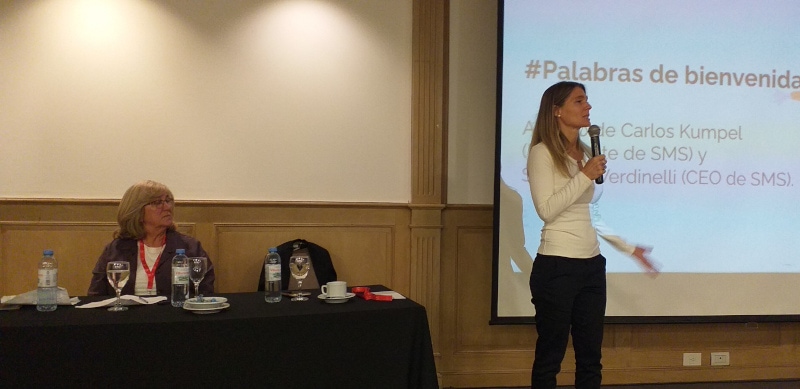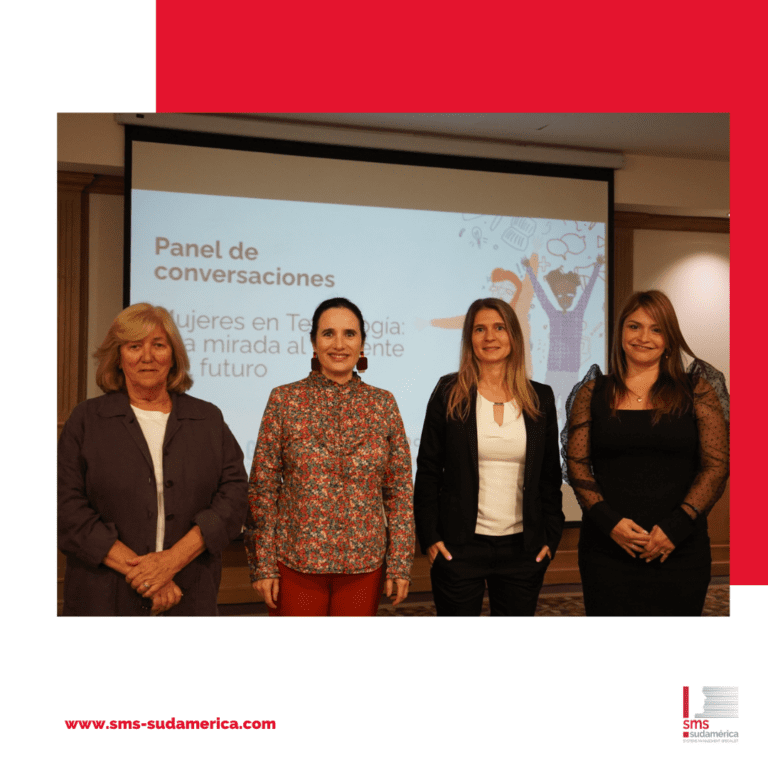Women in Technology: a look at the past and the future
At SMS Sudamérica want to change the world for a more equal and gender-inclusive one. To achieve this goal, this technology solutions provider first had to evolve from the inside out, starting with the promotion of its young CFO, Soledad Verdinelli, to the position of CEO. With these credentials and as part of a series of ongoing actions to contribute to the social network of which they are a part, SMS Sudamérica organized in late April the meeting “Women in technology: A look at the present and the future” at the Cyan Americas Towers Hotel in the City of Buenos Aires.

“In May we will be 36 years old, and this is the first event we are doing that is not associated with a technology tool or a product,” he notes. Carlos Kumpel, president of SMS Sudamérica. “We are a company that is migrating, that is changing its way of seeing things, and we are learning to listen, to look, to smell, to feel what is happening around us. Even though we are a technology company, we believe that the social fabric is changing. So today it is inconceivable for us to understand the management of a company without a model of integration or diversity”.
Perhaps the most important of these actions is SMS Sudamérica Academy: an educational program of the company aimed at people who do not come from Technology, where they are trained and develop in different roles related to the industry. The idea is to prepare them for promotion in a sector that is in high demand, with significant income and expectations of professional growth. This initiative is supported by foundations such as Compromiso / Potrero Digital (yes, the same one that sponsors the film director Juan Campanella, with the support of both the production company Mundo Loco and the National Fund for the Arts, and inaugurated back in 2018 a first digital education node in the Cooperative “La Juanita”, in the party of La Matanza) and Pescar Foundation (a project that started in 2003, with the support of Asociación Conciencia and Universidad del Salvador).
At the same time, SMS Sudamérica is also concerned about the planet and the carbon footprint that the organization itself is leaving on the environment. With regard to society, SMS Sudamérica is offering companies and municipalities its SIGRA system (Environmental Risk Management System). At the same time, the company’s commitment is to achieve carbon neutrality in the short term, offsetting its own emissions by acquiring green bonds.

A meeting for inclusion and diversity
The meeting was opened by Carlos Kumpel and Soledad Verdinelli, and the first presentation was given by Georgina Sticco, co-founder of Grow – Gender and Work, who analyzed the reasons why girls, young women and women fail to enter technology-related jobs. In this order, she presented the concept of a “broken pipeline”, a metaphor that summarizes how women (but also people with different gender identities who are a minority in society) are losing interest, or are being expelled from the different professional and training instances around the so-called “hard sciences” and technology. In Argentina, according to the Permanent Household Survey cited by Sticco, the participation of women in the Programming and Consulting sector has remained at around 20% over the last six years. Going further back, in the training stage, it can be seen that women represent only 30% of the student body in technical schools and 34% in those with a computer science orientation. In the long term, this lower presence means that these women and numerous minorities are not well represented, for example, in the algorithmic models used by companies such as Facebook or Google. A McKinsey study (prior to the pandemic) indicated that if women were on an equal footing with men in terms of working conditions, the country’s GDP would increase between 11% and 26%. “If we think about that future, which will be even more technological, and to which we women are not reaching (and not because we don’t want to, but because the environment is not allowing it) we are losing as a country and as a region,” said the Grow specialist.
The highlight of the day was the panel integrated by Vanina Bustos, Digital Factory & Data Manager of SMS Sudamérica; Carolina Biquard, executive director of Compromiso / Potrero Digital; Silvia Uranga, general director of Fundación Pescar; and the CEO of SMS Sudamérica.
“It is very difficult for a woman to think, from the outset, of studying engineering or some of these careers (linked to the hard sciences). But if she starts by taking a short course, and grows in training, the possibilities increase”, commented Biquard. Ultimately, this is the type of training that Potrero Digital is betting on. “The digital world allows young people to study and produce in a very short time,” he added. “This year we had set ourselves the goal of giving 3,500 scholarships (similar to last year), but at this stage of the year we have already given 7,000 scholarships. During the pandemic, the percentage of women who studied with Potrero courses exceeded 60%, although more recently we have returned to a 50-50 balance. Currently, the entity is promoting Potrero Tec: a company formed by Senior Technology professionals, with Semi Senior and Junior students. “Here as a woman, I feel challenged to prove that we can build a company as solid as the work we do at the foundation,” Biquard concluded.
In his turn, Uranga highlighted the capacity of technology as a tool to reach the farthest corners of the country. Thanks to a wide network of alliances and partners, Fundación Pescar has a presence and operational capacity throughout the country, to which, during the pandemic (after overcoming some cultural barriers) virtual training was added. In this training network, 60% of the trainees are women. “We always say that you have to study to work and work all your life to study. And with SMS Sudamérica Academy we give the opportunity to the young people who come out of our courses, as it can also be the case of those who come out of Potrero Digital, to have the power to build a career. That career path has to be with equal opportunities. We can all do it.

During the closing round of the panel, Bustos recommended analyzing the place where each young person will develop professionally, regardless of gender. “There are companies that only care about you doing the task they need you to do, and you can’t project yourself. These are totally infertile grounds for professional development.”
“Being women, I think it is important that, when we have a space from which we can decide, we accompany all those women who are trying to join a Technology company or any other position with decision making. And it is also important that they are encouraged, because many times, due to these biases, we are not encouraged. And that men accompany them because this is teamwork. We work much better as a team,” said Verdinelli.
Note by: IT Site

